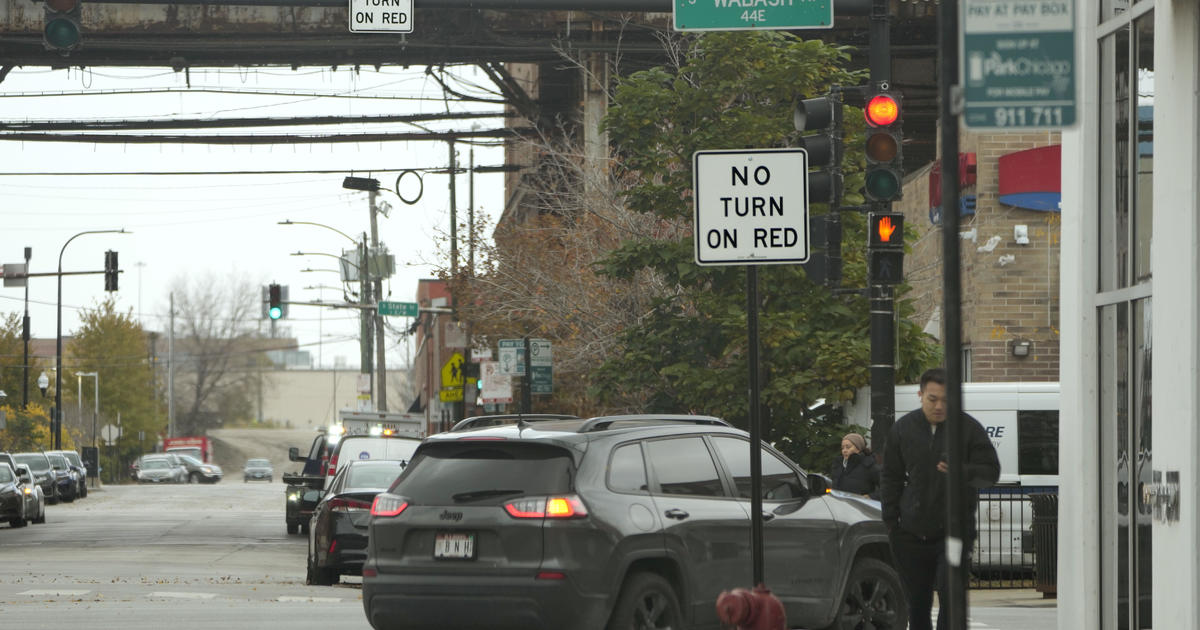Sophee Langerman was on her way to a bicycle safety rally in Chicago’s Lakeview neighborhood in June when a car turning right rolled through a red light and slammed into her bike, which she was walking off the curb and into the crosswalk.
The car was moving slowly enough that Langerman escaped serious injury, but the bicycle required extensive repairs. To Langerman, it’s another argument for ending a practice that almost all U.S. cities have embraced for decades: the legal prerogative for a driver to turn right after stopping at a red light.
A dramatic rise in accidents killing or injuring pedestrians and bicyclists has led to a myriad of policy and infrastructure changes, but moves to ban right on red have drawn some of the most intense sentiments on both sides.
Washington, D.C.'s City Council last year approved a right-on-red ban that takes effect in 2025. New Chicago Mayor Brandon Johnson’s transition plan called for “restricting right turns on red,” but his administration hasn’t provided specifics. The college town of Ann Arbor, Michigan, now prohibits right turns at red lights in the downtown area.



I mean, it’s pretty easy to not hit someone while turning right on red if you look where you’re going…
In a lot of cities, it’s extremely difficult to see past the corner because of parked cars. We could cut down on street parking, but people scream if you even consider restricting their parking options.
Especially when those parked vehicles are trucks or SUVs or some other unsafe large vehicle.
I mean I have a hate boner for giant cars as much the average person, but even a reasonably-sized, economy sedan can block my view of the sidewalk/any cars that might be coming around the corner. I would say it’s a 50% chance in my city that, in order to safely turn right on red, I’d need to inch about halfway into the lane I’m turning into, which already has the potential of causing an accident.